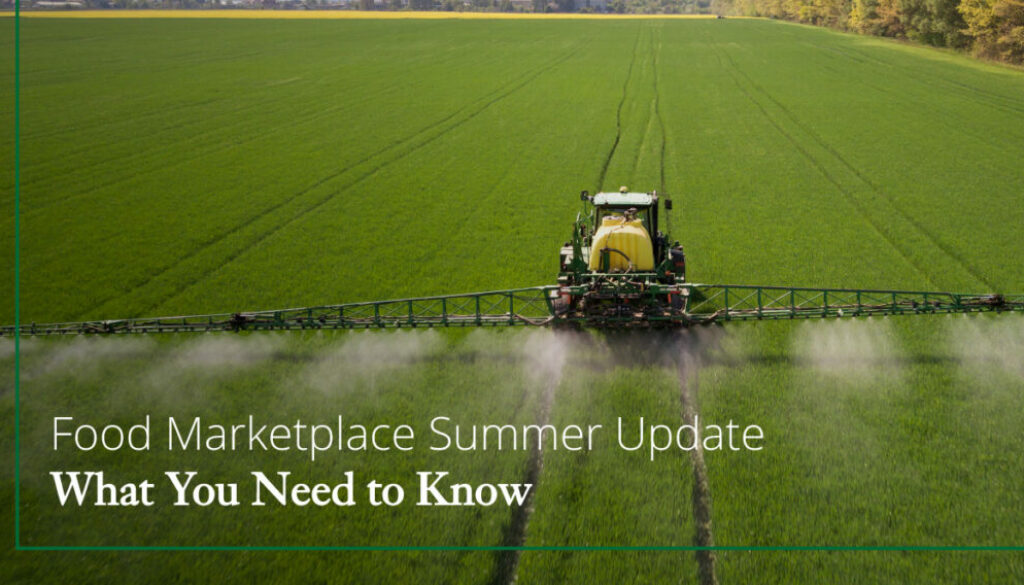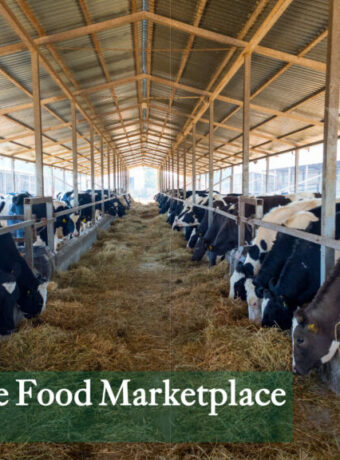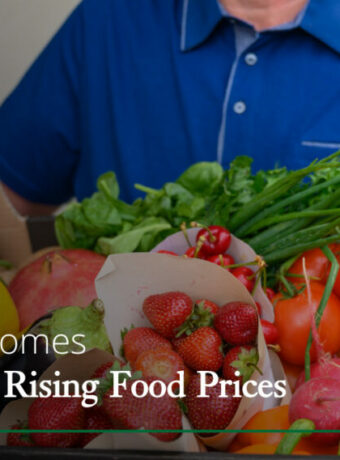Food Marketplace Summer Update – What You Need to Know
The feedback we have received following our previous review of the marketplace and guidance on how to navigate it, has been fantastic. So we are glad that these reports are creating clarity and also hopefully reassuring some.
The world and all marketplaces are changing very fast right now, as most will know and understand. So we want to ensure you are completely up-to-date and understand the drivers to changes that may affect you; namely food price, and delivery.
So let us provide a current and honest picture of where we are in the world today, but let’s also work together to mitigate the negative effects they will have on our care homes and residents! Unfortunately none of us can be completely insulated, but we can act to ensure quality of nutrition and service is still high!
June – July: Events & Changes Affecting the Food Marketplace
There are many small issues that affect our market daily and weekly. Some may seem nothing to do with food production or delivery, but in fact have a significant, or at least some kind of effect.
Politics & the Economy

Here is a snapshot of significant updates for the period of June – July:
- Defra ministers have pressured the Government to address the UK’s rising fertiliser costs and possible CO2 shortages after CF Fertilisers closed one of its 2 factories. A CO2 shortage would push food prices up even further. Stay tuned for further updates here.
- The conflict in Ukraine intensifies creating much instability in Europe and Worldwide. With a large proportion of the world’s fertilizer and animal feed coming from both countries, this conflict will have a prolonged effect on the supply of both.
- World leaders prepare for a Nato summit in Madrid to confirm increasing Nato troops on high alert to over 300, 000.
- G7 leaders have agreed to work on a price cap for Russian oil, cut the Kremlin’ s energy revenues and push for a ban on Russian gold imports to tighten sanctions on Moscow.
- G7 leaders have pledged an additional $4.5 billion to combat global food insecurity – making the fund allocated to this now $ 14 billion. They have asked all countries to avoid “excessive stock piling of food” to combat further price increases and mitigate a potential global hunger crisis.
- On 7th July Boris Johnson resigned as Prime Minister after losing the support of his political party, but remains in power.
- U K inflation is now at 9.1%, the fastest rate in 40 years , as food costs surge – now over 4x higher than the Bank’s target of 2%.
- Workers and unions have pushed for pay rises but the Government warn of ‘inflationary spirals’ if companies increase wages and then shift the costs to consumers through higher prices.
- ONS data showed job vacancies in hospitality reached 174, 000 between March-May 2022 – 8, 000 more than the previous quarter. Barclays Corporate Banking data shows almost 1 in 5 hospitality employers have boosted wages to combat the crisis.
Social Effects

Here is a snapshot of significant events from a social and behavioural science point of view for the period of June – July:
- As the cost of living rises, nearly half of adults have cut back on food purchases in June, ONS data shows. ASDA has reported that customers are asking cashiers to stop scanning items when the till total hits £30 to cut costs.
- A 3 day rail staff strike over pay, jobs and changes to working practices impacted England, Wales and Scotland. Remote working reduced the impact for some industries, but late-night hospitality suffered up to 40 % loss in trade, NITA data suggests. Further strikes are expected as disputes between unions and rail bosses are unsolved.
- Staff shortages and technical issues have caused hundreds of flight disruptions and cancellations across UK airports.
- The National Farmers’ Union of England and Wales has warmed of a turkey production shortage this Christmas due to bird flu and rising living costs.
Technology Effects

Here is a snapshot of significant events from the world of technology that may be having an effect on the food marketplace for the period of June – July:
- John Lewis Partnership is launching a Chef Academy to help tackle labour shortages in the hospitality sector taking on up to 10 apprentices this year, with a view to more in the future.
- A Scottish council is trialling delivering school meals in remote areas by Unmanned Aerial Vehicles to improve access to healthy meals, reduce delivery times and help contingency planning in cases of extreme weather conditions.
In Summary
We are living through a volatile market and world right now. So many of the issues we see in price and availability is due to a combination of many of the points above. However, the market is fighting back. Unfortunately none of us can be completely insulated, but we can act to ensure quality of nutrition and service is still high by following a few of the steps we outline below.
These are steps and mitigations already being carried out for our clients.
Continued: How You can Mitigate Some of the Difficulties These Cause
Along with our partner suppliers BidFoods, we continue to develop our service and ensure our customers receive fresh nutritious ingredients in-line with their menu requirements. Here are some of the actions we are taking and have been taking as an organisation on behalf of our clients:
- As our clients know, our processes and procurement software allow us to log orders early; way before the product requirement becomes immediate.
- If the above doesn’t solve shortage issues then we have already assessed required products and menus that may include ‘short-life’ products and planned suitable alternatives in advance.
- We are working with our supplier, Bidfood being a Primary Supplier, to ensure we have sufficient stock to meet your requirements and to facilitate in-bound deliveries. In some cases we are even collecting stock from suppliers when they are unable to deliver.
- We will continue to engage with you, or customer, to achieve procurement forecasts that are as accurate as possible during this volatile period.
- Our Primary Supplier Bidfood is liaising with government departments to ensure the food service industry is prioritised in their decision making.
If you are not a customer of ours, we can provide the following advice:
We would direct you to our recent article that details actions you can take that includes:
- Menu & waste management
- Supply chain management
- Long term savings from better nutrition
Read the details here: https://revive-catering.co.uk/how-care-homes-can-survive-rising-food-prices/
We really are right behind you folks. So please don’t hesitate to contact us with any questions.




